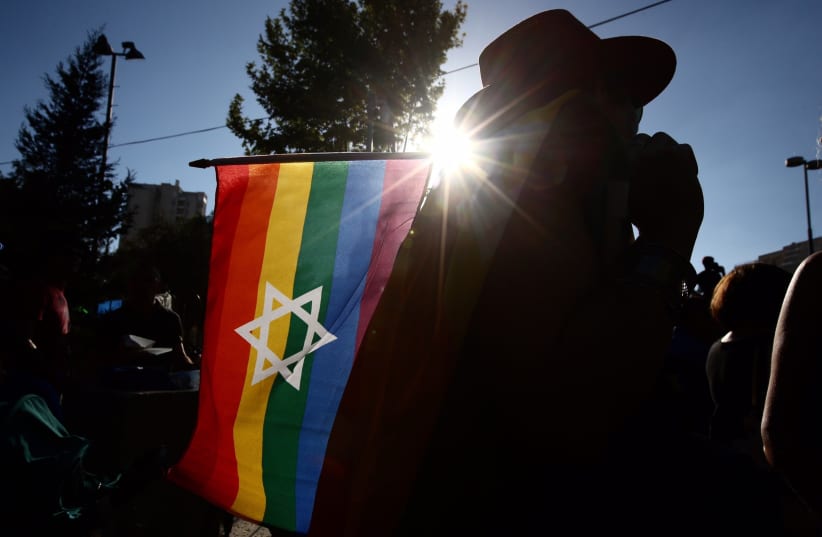The religious non-profit Kehila Datit Tomechet (Hebrew for “a supportive religious community”) will participate in the Jerusalem Pride Parade this Thursday for the 6th year, spreading their message of love and tolerance.
“We care about our children, our sister and brothers, about our B'nei Akiva leaders, about the Hesder Yeshiva students in the closet – all of them are loved and wanted and deserve to be part of the religious community, just like everyone else,” read a statement on the official Facebook event for Kehila Datit Tomechet’s participation in the Pride Parade.
“No one should feel that they are ostracized from the synagogue. No one should feel they have no choice but to leave Judaism altogether, or to break off relations with family and friends just because of their sexual orientation or gender identity.
“We are marching because living in the closet is death, literally. (The word for “closet” and “coffin” are the same in Hebrew.) Too many people from the gay community are suicidal, and we can’t claim ‘Our hands did not shed this blood’ if we didn’t create a society that allows for diversity and the love of all of God’s creatures,” the statement proclaimed.
The Jerusalem Pride Parade, an annual event with the mission of preaching pride and tolerance for the LGBTQ community, was held for the first time in 2002 under the motto: “Love Without Borders”.
However, the march has faced opposition, especially from members of religious communities. In 2005, an attempt to stop the parade was halted by a district court. The decision led to dozens of Ultra Orthodox Jews protesting the event.
One of the protesters, Yishai Schlissel attacked three parade participants with a kitchen knife and was convicted of attempted murder. Less than three weeks after being released from prison in 2015 he returned to the the Pride Parade in Jerusalem where he stabbed six participants and killing 16-year-old Shira Banki.
This year’s pride parade comes in the wake of mass protests by the LGBTQ community in recent weeks over a controversial law that denies state-supported surrogacy to homosexual couples and single men.
The bill – enacted In July, just before the Knesset recessed for the summer – expanded eligibility for state-funded surrogacy to include single women rather than only married heterosexual couples, as it had previously done, but excluded single men.
The bill generated uproar among the LGBTQ community and its supporters, which snowballed into a nationwide strike with hundreds of businesses joining the strike .
A poll published by Channel 2 last week showed that 56% of the public reported that they supported the protests, with 51% of Likud voters, 58% of Bayit Yehudi voters and almost 90% of Yesh Atid and Zionist Union voters backing the LGBTQ community. The only political parties where only a minority supported the protests were the ultra-Orthodox parties and the Joint List.On Monday, Prime Minister Benjamin Netanyahu’s wife Sara, responded to the protests, assuring members of the LGBTQ community that they “are in the prime minister’s heart.”In contrast, last week more than 200 rabbis from the national-religious sector – some prominent leaders of their community – published a letter in which they condemned surrogacy and adoption for homosexual couples and single men, describing them as “perverts.”
Despite opposition from other religious groups, Kehila Datit Tomechet was very clear about their support for the LGBTQ community: “We want to give a voice to another Judaism – inclusive, loving and accepting. A Judaism that puts an end to homophobia and hatred.”
Tamara Zieve and Jeremy Sharon contributed to this report.
